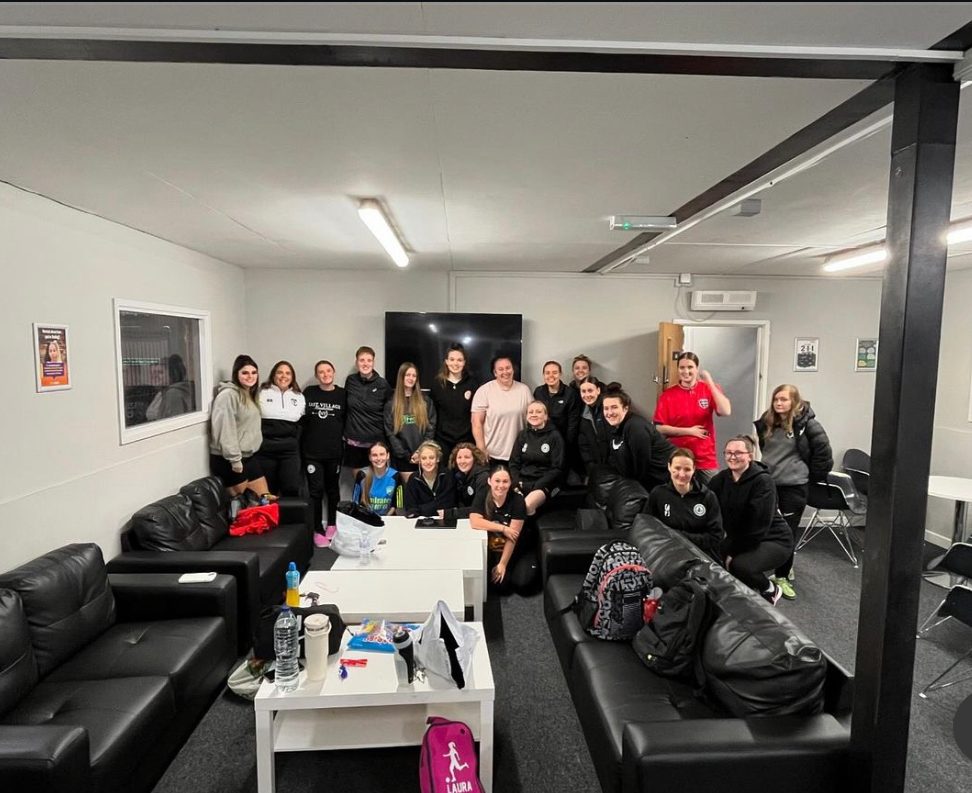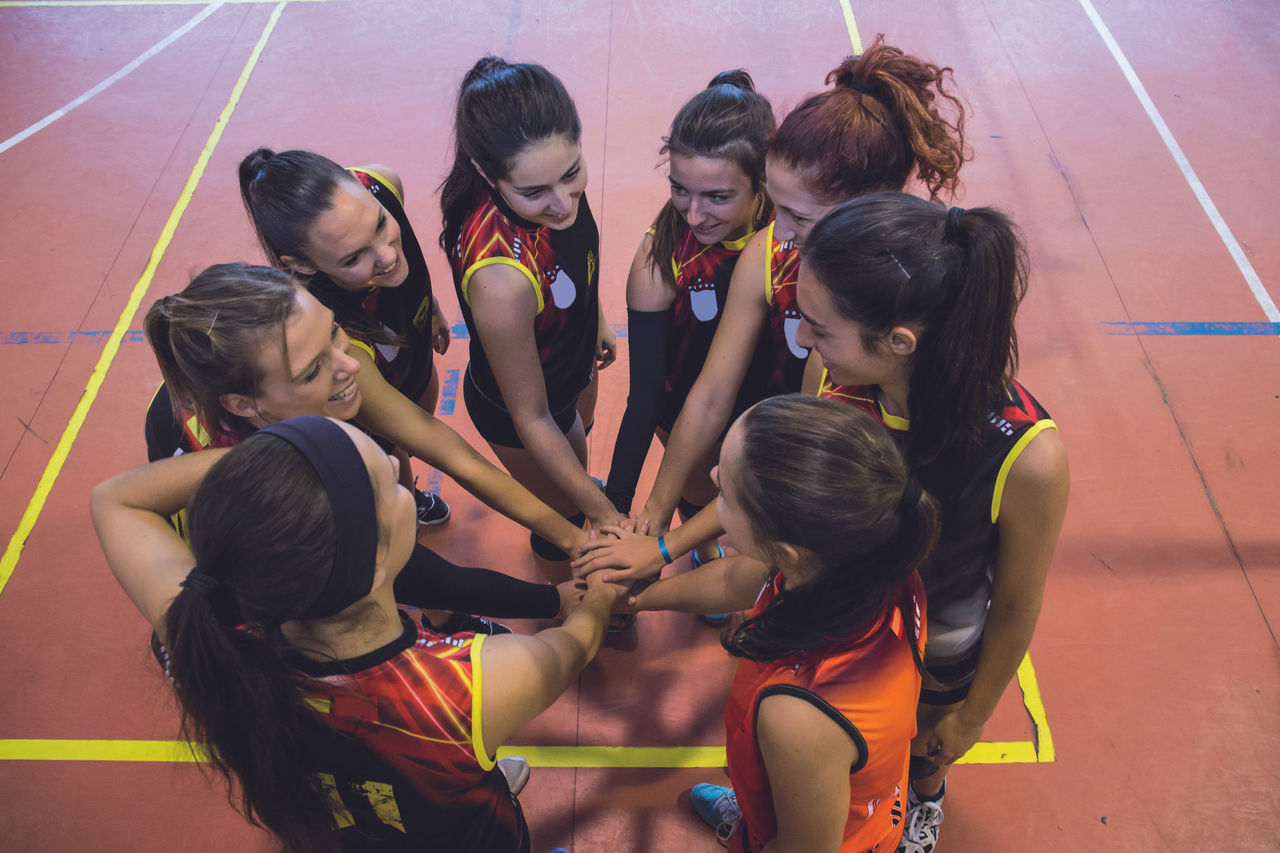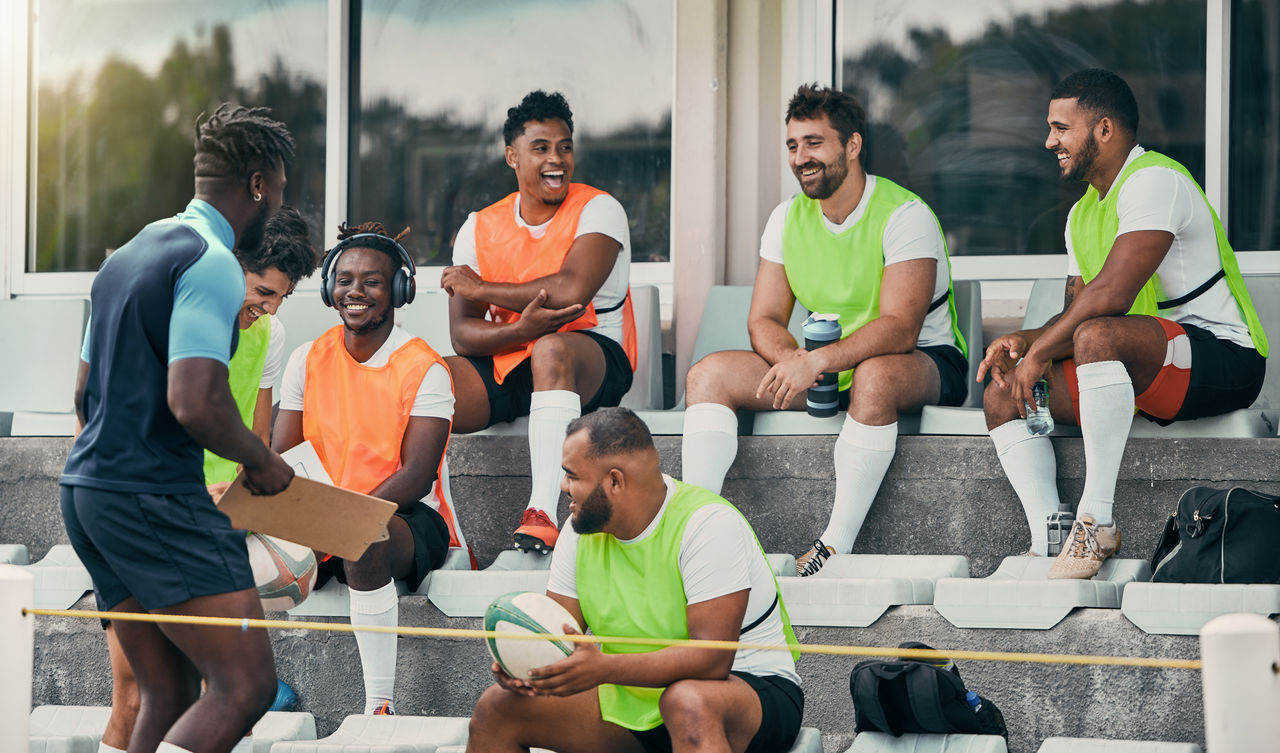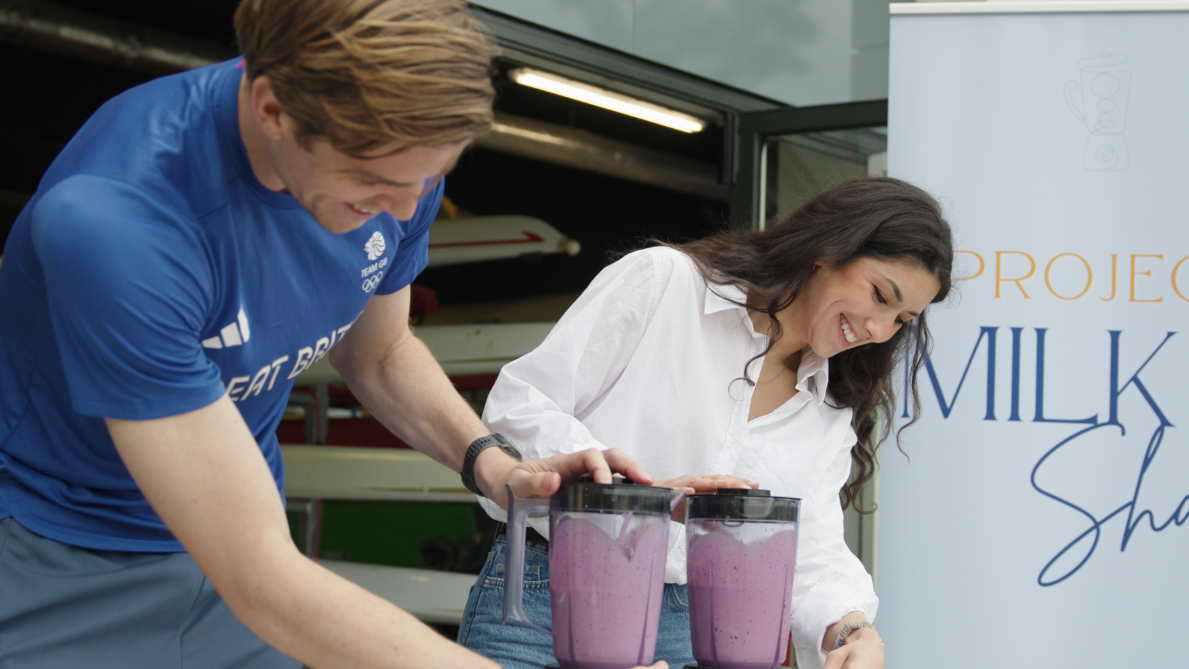GetPRO Professional are proud to support the funding of sports nutrition grants across the UK. Hosted in partnership with the Nutrition Society, the GetPRO Professional Sports Nutrition Grant Programme continues its support of early career sports nutritionists who are working with local sporting clubs and grassroots athletes.
Robyn Aitkenhead, one of the 2024 GetPRO Grassroots Fund recipients, shares her experience and learnings from the programme, highlighting the impact her project had at her local women's football club.
Name of project: Providing nutrition support for Rogerstone Women's AFC
Name and affiliation of recipient: Robyn Aitkenhead, PhD candidate in Sport and Exercise Science at Swansea University
Grassroots partner: Rogerstone Women's AFC in Newport, Wales
Date of project: October 2024 – April 2025
Thanks to nutritional guidance from Robyn Aitkenhead, the players at Rogerstone Women’s Football Club feel more energised and resilient both on and off the pitch.
The GetPRO Professional grant came at the right time for Robyn. She had already been involved with helping clubs in her native Scotland, but after moving to Wales for her PhD, Robyn had to start from scratch developing connections to local clubs. The grant gave her the kick start she needed.
“It gave me an opportunity to make a tangible difference locally,” Robyn says.
Identifying the gap: not enough support for female athletes
Robyn found out about the GetPRO Professional grant, run in partnership with the Nutrition Society, at the 2024 European College of Sport Science conference in Glasgow. GetPRO had a stand, and Robyn picked up a flyer about the newly launched GetPRO Professional programme.
Robyn had volunteered with two of Scotland’s most significant women’s football clubs, Rangers Women FC from Glasgow and Hearts Women from Edinburgh. Rangers turned fully professional in 2020, and Hearts are semi-professional. Robyn recalls the managers being apologetic that they didn't have budget to pay her, unlike their counterparts at the male football clubs. “I was surprised that even at that elite level, there was no budget for nutrition support,” Robyn says. The female elite teams had a sports scientist who was expected to cover nutrition too.
“That really got me quite riled up. So, I started to work with smaller, more grassroot teams, as they didn't have any sports science backing at all,” Robyn recalls.
“From my experience, especially in women’s sport, there’s almost no structured nutrition support at the grassroots level, where resources are limited. This is the only programme I know of that addresses that gap.”
Going back to basics
Through needs assessment questionnaires and group discussions, Robyn found that the athletes had irregular eating patterns, lacked meal planning skills, and had insufficient post-training nutrition, often due to time constraints or limited access to appropriate food options. The players expressed a range of goals related to body composition, energy levels during training, and recovery nutrition.
With these insights in mind, Robyn created a six-month programme that was realistic, accessible, and relevant to the team’s routines and preferences. She realised that the most significant way to make a difference for the team at Rogerstone Women’s AFC was to go back to basics and address the barriers identified above.
The athletes at the club work full-time and have families and busy schedules, so Robyn wanted to be realistic about their nutrition plan. “It’s all about time allocation. I think a lot of people push nutrition down on their list of priorities, and sometimes it doesn’t even make the list,” she said.
She advised the athletes to prioritise simple things like eating a proper breakfast in the morning to start the day right, staying hydrated throughout the day and getting enough sleep at night. “People think nutrition is complicated, but it doesn’t need to be. You can build your meals around the same principles each day and still get all the nutrients you need,” says Robyn.

How the program went
Over six months, Robyn delivered a combination of group education sessions and individual support to focus on -
- Macronutrient balance for performance and recovery
- Practical strategies for portion control and mindful eating
- Guidance on pre- and post-match meals/snacks, tailored to the team’s training and game schedule
- Hydration, with a focus on the link between fluid intake, energy levels, and concentration
- Strategies for sustainable fat loss without compromising strength or stamina
Robyn provided meal planning templates, quick and balanced snack ideas, and weekly nutrition challenges — including fun, achievable, and team-focused activities, such as an ‘Eat the rainbow’ meal prep challenge. Robyn facilitated weekly team discussions, allowing the team a chance to reflect on progress and learnings, what went well, and where they could improve, helping keep players engaged and accountable.
To ensure that the athletes were following the plan and staying motivated, Robyn set up a WhatsApp group where they could share meal ideas, daily meals, big and small wins, and words of encouragement. It was also a place for players to ask her real-time questions about the plan and seek guidance. She credits the WhatsApp group for providing a much-valued community element to the programme where they could find support, connection, and motivation.
For a smaller group of players who wanted to optimise body composition, Robyn stressed the importance of retaining muscle mass while achieving sustainable fat loss. She guided the players to prioritize adequate protein intake to retain lean muscle mass and support their weight loss goals in a healthy and sustainable way.
Small steps big impact
Robyn received positive feedback from team members. Many reported feeling more energised and resilient during training sessions and match-day games. On feedback forms, one of the players wrote: “I feel like I have more energy during a game.” Another reported: “I don’t crash halfway through anymore; I can go the full 90 minutes.”
Players demonstrated increased nutritional awareness and made more informed food choices to help them fuel before training sessions. Many expressed a desire to continue implementing the strategies they had learned during the programme.
Robyn’s top tips for running a successful sports nutrition programme
- Get the team’s coach interested and involved
- Don’t be discouraged if not everyone chooses to engage. You never know what other priorities people are juggling
- Get to know team members individually. There’s no one size fits all approach to nutrition
- Provide opportunities for open and honest communication and make yourself approachable
Robyn recalls needing to emphasise that she wasn’t there to judge their food choices. Being open helped to empower athletes to build healthy habits around food and nutrition.
Robyn plans to keep supporting female athletes and clubs through her research and practice in the future. “I’m not going to let nutrition slip away. It’s my passion.”
Find out more
The GetPRO Professional Grassroots Sports Nutrition grant in funded by Danone’s GetPRO Professional programme and hosted in proud partnership with The Nutrition Society. Find out more: https://www.getpro.co.uk/getproprofessional/grassroots-grants.html
Find out more
you may also be interested in
Disclaimer: This information is intended for Health and/or Nutrition Professionals working within the field of sport and performance nutrition, including sports nutritionists, dietitians, sports scientists, coaches, athletic trainers and others who have professional training in nutrition and human physiology.


